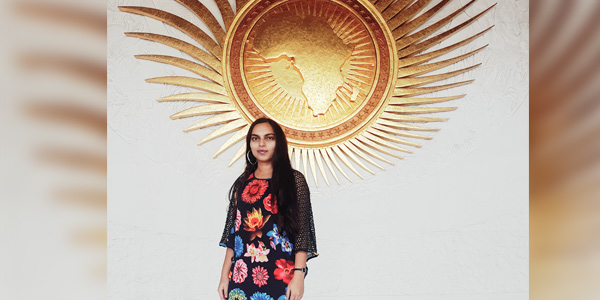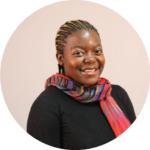Each week, frayintermedia highlights an advocacy hero doing good work on the continent and honours them as our #frayHero. Meet multi-award winning public health and gender justice champion Shakira Choonara who is driven by an interest in creating systems that level the plainfield for young women to thrive.

Q: You have been at the forefront of public health advocacy including young womens rights. How did you become involved in this type of work?
A: Each and every day, I am driven by memories of my father and the way he was treated in the healthcare system, both public and private. No one truly caters for the visually impaired or differently-abled. My work in gender started when I joined the civil society space in 2017.I began working on HIV programming seeing how gender equalities drive the burden of disease and during a meeting in Mozambique, I learnt that we have made no progress. Young 10-year-old girls are subject to child marriage. All around me, in whatever space I am in, I hear horrific unimaginable stories of gender-based violence. These are things which I simply cannot ignore in my lifetime.
Q: What are some of the approaches and methods you use in your work?
A: At the moment at the World Health Organization (WHO), one of my most exciting projects is the working for the Health Programme which focusses on human resources for health/ health workforce. I draw a lot on the evidence and research to inform any writings or outputs that I support.
A career highlight was supporting the development of the new Working for Health 2022-2030 Action Plan which was adopted at the World Health Assembly this year. My work also extends to partnership and relationship management which includes making spaces wide open wide for all stakeholders, creating robust processes and fostering collaboration.
Similarly, I hold a dual role at UN Women, where I lead the Action Coalition on Bodily Autonomy and Sexual and Reproductive Health Rights.In this role I coordinate global efforts by leaders from governments, multi-lateral agencies, massive philanthropies, civil society and youth. This entails strategic leadership, building relationships and collaboration all centred on action and realising global commitments to gender equality.

It’s a tonne of engaging with the research evidence, writing and supporting policies and multi-stakeholder relations. It’s hugely exciting operating in the global heath policy arena, but I do also thoroughly enjoy working with communities and patients, that’s one of the reasons I still give so much of my time to Operation Smile to provide surgeries for cleft lip and cleft palate.
Q: What is the value of amplifying and mainstreaming the voices of African women today?
A: In the spirit of women’s month in South Africa, I have to mention the power of our foremothers coming together in 1956 to stand against the Apartheid Government – that is the power of women. In today’s times, in order to fight social ills and to fight for social justice and equality or equity, we need those in society who are oppressed on every front to speak out, whether it is against harmful cultural norms such as child marriages or accepting violence. Be it women who expose harassment in work places or even lower pay. Women’s voices are the voices which can speak to inequalities and which must be heard and taken seriously.
Q: What women narratives do you feel are missing in African mainstream media?
A: Every single narrative is missing, that’s why I am such a supporter of Quote this Woman, they really have propelled our voices as experts in the South African and global arena. In my opinion there is a definite age issue, young women’s voices despite being professionals are still glaringly missing, we don’t hear much from voices on the ground and female entrepreneurs. As a young female entrepreneur almost everything I read is male-centric.
Q: How can young women take effective action for change in their communities?
A: Action could mean so many different things, it could mean a community clean up, standing up against patriarchy in religious orcultural institutions, building a body positive society, fighting crime or even standing up against bullying. There are a myriad of issues, step one is identifying the issue, step two is deciding what you want to do about the issue and step three is being committed to the issue long-term, change does not happen overnight.
Q: What does a ‘women-enabled and women-inclusive society’ mean or look like
for you?
A: I am really passionate about women and girls who are from marginalised populations.There is nothing really being done for differently-abled women and girls in our society, those who live with HIV and those who are from impoverished rural settings. When we equalise the playing field so that every single young women has a shot at completing school, being a CEO, becoming a minister, following a career path and deciding what to do with their own bodies, then only will we see a different world.

